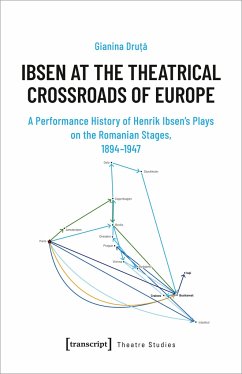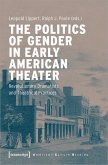While Ibsen's plays were seldom performed in Romania in the first half of the 20th century, historical sources highlight his strong impact on the national theatre practice. To address this contradiction, Gianina Druta approaches the reception of Ibsen in the Romanian theatre in the period 1894-1947, combining Digital Humanities and theatre historiography. This investigation of the European theatre culture and the way in which the foreign acting and staging traditions influenced the Romanian Ibsenites provides new insights into mechanisms of aesthetic transmission. Thus, this study presents a European theatre landscape whose unpredictability and uniqueness cannot be confined to essentialist interpretations.
Hinweis: Dieser Artikel kann nur an eine deutsche Lieferadresse ausgeliefert werden.
Hinweis: Dieser Artikel kann nur an eine deutsche Lieferadresse ausgeliefert werden.








